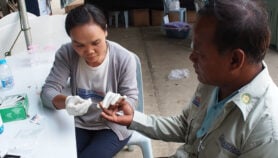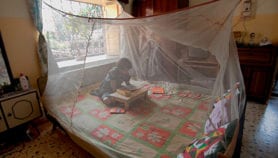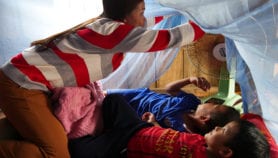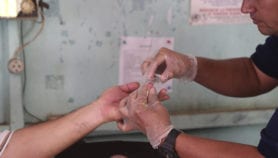Send to a friend
The details you provide on this page will not be used to send unsolicited email, and will not be sold to a 3rd party. See privacy policy.
COLOMBO] Sri Lanka faces a resurgence of urban malaria, say researchers who have found the main mosquito vector Anopheles culicifacies breeding in polluted water bodies in the former war-affected areas in the east of the island.
The results of the survey published last month (19 August) in the Malaria Journal show that A. culicifacies and other potential malaria vectors are now breeding in drains containing waste water.
So far, it was believed that polluted water in urban centres hindered development of the larvae of most anopheles vectors. A.culicifacies carries the parasite Plasmodium vivax that causes non-fatal malaria and P. falciparum that is responsible for deadly cerebral malaria.
Lead researcher Nayana Gunathilaka at the molecular medicine unit of the faculty of medicine, Kelaniya University (KU), tells SciDev.Net that the results serve as an "early warning" to a country unprepared to deal with malaria cases in the new settlements created in former conflict zones.
The survey was carried out as part of surveillance under the Sri Lankan ministry of health's anti-malaria campaign in the
eastern district of Trincomalee which was under the control of
rebels for nearly three decades until 2006.
Gunathilaka says the findings showed that the specific vector had adapted to breeding in a wide range of water bodies and in waste water, increasing the risk of urban malaria.
"The survey was carried out in an area which was less accessible during the war, preventing detailed research to identify unreported habitat diversity," Gunathilaka says. "The study sought to determine larval habitat preferences, densities and diversity."
According to Wimaladharma Abeyewickreme, an associate researcher from the department of parasitology, KU, malaria — previously a leading cause of morbidity and mortality on the island — requires continuous scientific monitoring to detect new patterns of breeding and vector density to ensure malaria-free status.
Sarath Deniyage, consultant community physician and director of the anti-malaria campaign, tells SciDev.Net that countries in the region need to deal with urban malaria, starting with studies to ascertain risk levels.
"Detailed surveys are necessary in the former conflict zones where people are resettling in thousands," Deniyage says.
The survey notes the absence of systemic studies, particularly in the north and east. It suggests that changing weather patterns and ecology may have resulted in mosquito species shifting out of their ecological niches.














